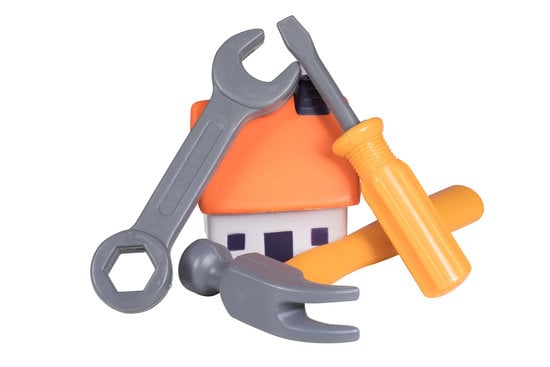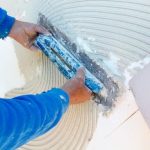Are you considering a career as a home improvement contractor? One of the crucial steps towards establishing yourself in this field is obtaining the necessary license. In this article, we will delve into the process of how to apply for a home improvement contractor license and why it is essential for your success in the industry.
Being a licensed home improvement contractor comes with a myriad of benefits that can elevate your credibility and reputation in the eyes of clients. Not only does a license showcase your expertise and professionalism, but it also gives customers peace of mind knowing that you have met certain standards set by regulatory authorities.
However, before you can reap the rewards of being a licensed contractor, you must first meet specific requirements and navigate through the application process. From completing the necessary paperwork to passing examinations, there are several steps involved in obtaining your license. Stay tuned for a comprehensive guide on how to successfully apply for a home improvement contractor license and ensure compliance with regulations in your area.
Benefits of Being a Licensed Home Improvement Contractor
Being a licensed home improvement contractor comes with numerous benefits that can significantly impact your business and reputation in the industry. One of the key advantages of holding a license is that it adds credibility to your services. Clients are more likely to trust and hire contractors who are licensed because it demonstrates that you have met certain standards and qualifications set by regulatory authorities. This can help you secure more projects and attract a broader range of clients.
Legal Protection and Compliance
Another benefit of being a licensed home improvement contractor is the legal protection it provides. By obtaining a license, you ensure that you are operating within the boundaries of the law, which can protect you from potential legal issues and liabilities. Licensed contractors are required to adhere to specific regulations, codes, and standards, ensuring that their work meets industry requirements. This not only protects you but also safeguards your clients from substandard work or unethical practices.
Access to Higher-Paying Projects
Having a home improvement contractor license also opens doors to higher-paying projects. Many clients prefer working with licensed contractors due to the assurance of quality workmanship and professionalism. As a result, being licensed can give you a competitive edge in the market, allowing you to bid on larger-scale projects with potentially higher profit margins. Additionally, some government or municipal projects may require contractors to be licensed, providing additional opportunities for growth and expansion in your business.
In summary, obtaining a home improvement contractor license is essential for establishing credibility, ensuring legal compliance, accessing better-paying projects, and ultimately setting yourself apart in a competitive industry. By understanding the benefits of being licensed and following the necessary steps to obtain your license, you can position yourself for greater success as a professional contractor in the home improvement sector.
Requirements for Obtaining a Home Improvement Contractor License
Obtaining a home improvement contractor license is a crucial step for individuals looking to establish themselves in the construction industry and showcase their expertise. A valid license not only signifies professionalism and credibility but also ensures that contractors comply with local regulations and standards. To become a licensed contractor, there are specific requirements that need to be met, depending on the state or locality in which you plan to operate.
One of the key requirements for obtaining a home improvement contractor license is meeting the necessary experience qualifications. Most states require applicants to have a certain number of years working in the construction field under a licensed contractor. This hands-on experience ensures that individuals have the practical knowledge and skills needed to excel in the industry. Additionally, some states may mandate specific educational requirements, such as completing formal training programs or courses related to construction practices and safety protocols.
In addition to experience and education, applicants seeking a home improvement contractor license must typically pass an examination that tests their understanding of relevant laws, building codes, safety regulations, and business practices. The exam aims to assess applicants’ competence in handling various aspects of contracting work and ensuring that they are well-equipped to manage projects efficiently while adhering to legal guidelines.
Successfully passing this exam demonstrates the applicant’s proficiency in the field and their readiness to undertake construction projects responsibly.
| Key Requirements | Details |
|---|---|
| Experience Qualifications | Hands-on experience working under a licensed contractor. |
| Educational Requirements | Completion of formal training programs or courses related to construction. |
| Licensing Exam | Passing an examination on relevant laws, building codes, safety regulations, and business practices. |
Step-by-Step Guide on How to Apply for a Home Improvement Contractor License
Obtaining a home improvement contractor license is a crucial step for ensuring credibility, professionalism, and legality in the construction industry. By becoming a licensed contractor, you demonstrate to potential clients that you have met certain standards of competency and knowledge in your field. Additionally, being licensed can open doors to more opportunities and higher-paying projects, as many clients prefer to work with contractors who are properly licensed and insured.
To apply for a home improvement contractor license, the first step is to research the specific requirements set by your state or local licensing board. Typically, this will involve meeting educational requirements, such as completing a certain number of hours of training or obtaining a degree in a related field.
You may also need to pass an exam that tests your knowledge of building codes, safety regulations, and business practices. Some states require contractors to provide proof of insurance coverage and bonding as well.
Once you have determined the requirements for obtaining a home improvement contractor license in your area, you can begin the application process. This typically involves submitting an application form along with any required documentation and fees. Be sure to gather all necessary paperwork ahead of time to avoid delays in processing your application. It is important to double-check that all information provided is accurate and up-to-date before submitting your application to ensure a smooth approval process.
| Important Documents | Information |
|---|---|
| Educational certificates | Proof of completed training or degree in related field |
| Insurance coverage | Proof of liability insurance and bonding |
| Identification | Copies of government-issued ID or driver’s license |
By following these steps diligently and carefully preparing your application, you can increase your chances of successfully obtaining a home improvement contractor license. Remember that being licensed not only benefits you as a contractor but also provides peace of mind to clients who are seeking trustworthy professionals for their projects. Invest the time and effort into meeting all necessary requirements-it will pay off in the long run with increased opportunities and credibility within the construction industry.
Tips for Successfully Navigating the Application Process
When it comes to becoming a licensed home improvement contractor, the application process can sometimes be overwhelming. However, with the right guidance and preparation, navigating through the process can become much smoother. Here are some tips to help you successfully navigate the application process:
- Research and Understand the Requirements: Before starting your application, it is crucial to thoroughly research and understand the requirements set forth by your state or local government for obtaining a home improvement contractor license. This may include meeting certain experience, education, insurance, and financial requirements.
- Prepare Your Documentation: Make sure to gather all the necessary documentation required for your application. This may include proof of work experience, educational certificates, insurance policies, financial statements, and any other relevant paperwork. Having all your documents organized will streamline the application process.
- Complete the Application Accurately: When filling out your application form, pay close attention to detail and ensure that all information provided is accurate. Any discrepancies or missing information may result in delays or rejection of your application. If you are unsure about any section of the application, seek clarification from the licensing authority.
In addition to following these tips, it is essential to stay proactive throughout the entire application process. Keep track of important deadlines, follow up with any requested information promptly, and maintain open communication with the licensing authority. By staying organized and informed, you can increase your chances of successfully obtaining a license as a home improvement contractor.
It is also advisable to seek guidance from experienced contractors or industry professionals who have gone through the licensing process themselves. They can provide valuable insights and advice on how to navigate through any potential challenges or hurdles that may arise during the application process. Remember that obtaining a license demonstrates your commitment to professionalism and competence in your field – so put in the effort needed to successfully apply for and acquire your home improvement contractor license.
Common Mistakes to Avoid When Applying for a Home Improvement Contractor License
When applying for a home improvement contractor license, there are several common mistakes that applicants should be aware of in order to avoid unnecessary delays or rejections. By being proactive and understanding these pitfalls, aspiring contractors can streamline the application process and increase their chances of successfully obtaining a license.
To help you navigate the licensing process smoothly, here are some common mistakes to avoid when applying for a home improvement contractor license:
- Not meeting the eligibility requirements: Before beginning the application process, make sure you meet all the necessary eligibility requirements set forth by your state or local licensing board. This may include having a certain amount of work experience, completing a specific number of education hours, or passing a background check.
- Submitting incomplete or inaccurate information: One of the most common mistakes applicants make is submitting incomplete or inaccurate information on their application forms. Double-check all forms and supporting documents to ensure they are filled out correctly and contain all required information.
- Failing to provide sufficient documentation: Along with your application form, you will likely be required to submit various supporting documents such as proof of insurance, surety bond information, and letters of reference. Make sure you gather and submit all necessary documentation to avoid delays in processing your application.
By being mindful of these common mistakes and taking proactive steps to avoid them, you can smooth the path towards obtaining your home improvement contractor license. Remember that each state or locality may have specific requirements and procedures for licensing, so it’s crucial to thoroughly research and understand the guidelines applicable to your area before applying for your license.
Resources and Support Available for Home Improvement Contractors Applying for a License
Government Websites and Offices
When applying for a home improvement contractor license, it is important to utilize the resources and support available to make the process smoother. One of the first places to turn to is government websites and offices that provide detailed information on the licensing requirements in your state or locality.
These websites often outline the necessary steps, forms, and documentation needed for successful application. Additionally, contacting local government offices or licensing boards can provide further assistance and clarification on any questions you may have.
Trade Associations and Organizations
Another valuable resource for home improvement contractors seeking a license are trade associations and organizations within the industry. These groups often offer support, guidance, and educational opportunities for those looking to get licensed. They may also provide networking events where you can connect with experienced contractors who can offer advice and tips based on their own licensing experiences. By joining these associations, you can gain access to valuable resources that will aid you throughout the entire application process.
Consulting With Legal Professionals
For complex licensing processes, it may be beneficial to consult with legal professionals who specialize in home improvement contracting laws. Legal experts can provide personalized guidance on how to effectively navigate the application process, ensuring that all requirements are fulfilled accurately and efficiently.
They can also assist with any legal documentation or contracts that may be necessary during the licensing procedure. Having a knowledgeable attorney on your side can help alleviate stress and increase your chances of obtaining a home improvement contractor license successfully.
Conclusion
In conclusion, obtaining a license as a home improvement contractor is not just a legal requirement but also a crucial step towards professionalism and success in the industry. By becoming licensed, contractors can gain credibility, trust from clients, and access to additional opportunities that may not be available to unlicensed individuals. It showcases a commitment to quality workmanship, adherence to regulations, and dedication to providing excellent service.
One of the key benefits of being a licensed home improvement contractor is the ability to bid on bigger projects that require licensing. This can significantly expand business opportunities and increase revenue potential. Additionally, licensed contractors often have an advantage over unlicensed competitors when it comes to securing contracts and projects due to the assurance of their qualifications and expertise.
It is essential for individuals aspiring to become licensed home improvement contractors to familiarize themselves with the specific requirements set forth by their state or local jurisdiction. By following a step-by-step guide on how to apply for a home improvement contractor license and paying attention to tips for successfully navigating the application process, applicants can increase their chances of obtaining their license efficiently and effectively.
With resources and support available for those going through the licensing process, individuals can confidently pursue their goal of becoming licensed home improvement contractors.
Frequently Asked Questions
How Do I Get a Contractors License in NY?
To obtain a contractor’s license in New York, you need to fulfill certain requirements set by the state’s Department of State. These requirements typically include completing a specific amount of education or training, passing an examination, and providing proof of experience in the field.
How Do I Get a Contractors License in PA?
Getting a contractor’s license in Pennsylvania involves applying through the state’s Attorney General’s office. You will likely need to show proof of experience, pass an exam, provide financial statements, and potentially secure a surety bond or insurance.
How Do I Get My GC License in CT?
In Connecticut, acquiring a General Contractor (GC) license involves submitting an application to the state’s Department of Consumer Protection. You may have to pass an exam, show proof of experience, obtain liability insurance, and pay necessary licensing fees before being granted your GC license.

I’m thrilled to have you here as a part of the Remodeling Top community. This is where my journey as an architect and remodeling enthusiast intersects with your passion for transforming houses into dream homes.





